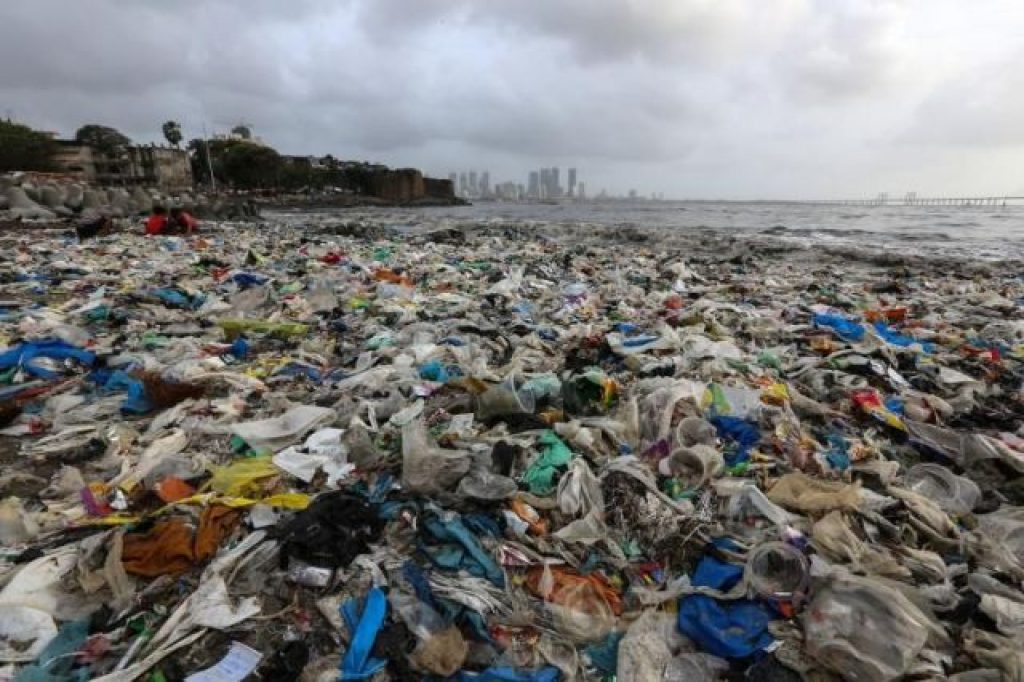Companies, governments, and people from all over the world, as shown by a survey published today by the environmental organization WWF, agree on the urgent need to reach a global treaty to fight against plastic pollution, which this week begins to be debated in the United Nations.
A survey of more than 20,000 people in 28 countries indicates that 90% of those surveyed want this treaty, and 85% of those consulted consider that the plastics-producing companies themselves should be responsible for reducing their use and recycling. of these materials.
82% of those surveyed by WWF – which has also collected two million signatures of support – want to reduce plastic in the products they consume daily as much as possible, according to a survey that highlights Mexico (96%), China ( 95%) and Peru (95%) as the countries where most people want to limit this production.
At the same time, 156 member countries of the United Nations, including Spain, have publicly expressed their support for the creation of a first legally binding agreement to limit plastics, which could be reached at the imminent UN Environmental Assembly on 28 February to March 2 in Nairobi.
A hundred companies, including multinationals such as Coca-Cola, Pepsi, or Ikea, have also recently shown in a joint statement their support for the initiative that has been negotiated since this week within the UN, and which starts with the basic objective to stop plastic pollution of the seas before 2030.
SOME PLASTIC ISLANDS THAT SCARE
WWF warns that plastic pollution, with gigantic “islands” of these materials in oceans such as the Atlantic or the Pacific and 21 tons dumped into the seas every minute, poses a “terrifying” scenario.
“The rate of production of plastics is growing at breakneck speed, the vast majority of them end up in the environment and the impact that this generates at an ecological, economic and sociological level is enormous, so we cannot wait,” he warned Efe the director of the WWF campaign against these materials, John Duncan.
Waiting for the next UN environmental assembly, in two years, would mean letting time go by “in which 35 million tons of plastics will be dumped in our waters,” warned the expert.
The current fragile state of marine ecosystems, whose survival is seriously threatened, has increased the pressure on the need to sign these agreements.
According to a recent study published by WWF, 88% of marine species are affected by serious plastic pollution in the oceans and many of them already have these materials in their bodies, including animals widely consumed by humans.
Among the marine species in our food chain in which plastic has been detected in the body, shellfish such as blue mussels or oysters stand out, while a fifth of the canned sardine brands contains these particles, WWF warned in this regard.
THE PLASTIC INDUSTRY DOES NOT WANT TO STOP
The organization’s studies predict that if measures are not taken, the production of plastics will double by 2040, which will cause the waste of these materials in the ocean to quadruple by mid-century, occupying an area of the sea surface twice and average larger than Greenland.
Many defenders of the possible treaty propose to set with it global standards for the regulation of plastic pollution that contemplate all phases of production, not only waste management, as is already the case in other international agreements.
“The standards would include all types of plastics, although once the project has the green light from the UN, it will be decided which types of plastics are the most dangerous and if it is necessary to apply a global ban on some of them,” Duncan pointed out.
From WWF they propose a system similar to the Paris Agreement on climate change in which each country develops its own national action plans under a series of universal rules.
Regarding the immediate effect that the implementation of the agreement would entail, Duncan acknowledges that in the short term the price of plastic products would rise by around 1.6% but affirms that, if it is quantified more broadly, the impact of plastic pollution produces a much higher economic cost, which is currently assumed by governments and societies.
